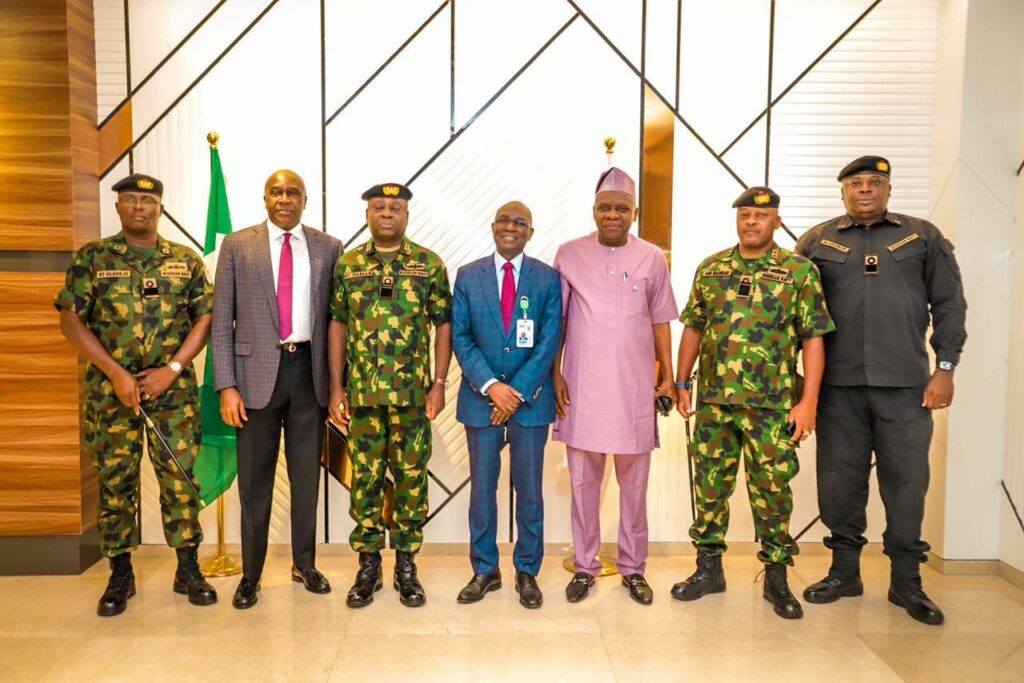
The Senate has raised concerns over the effectiveness of the Nigerian Maritime Administration and Safety Agency (NIMASA) in managing maritime security, prompting calls for legislative efforts to enhance its authority.
Recall that in a bid to strengthen maritime security, the Senate drafted a bill to repeal and amended the NIMASA Act of 2007, which, if passed into law, will empower NIMASA to impose fines on maritime security offenders without resorting to court proceedings. The move has however elicited serious disagreement between the Nigerian Navy and NIMASA
During a public hearing on the bill, which was organized by the Senate Committee on Marine Transport recently, NIMASA’s Director General, Dr. Dayo Mobereola commended the Senate for the proposed legislation, stating that it aligns with international best practices.
However, the Chief of Naval Staff, Vice Admiral Emmanuel Ogalla who was represented by a senior officer, raised concerns on behalf of the Nigerian Navy noting that a section of the proposed law mandating NIMASA to provide security could lead to conflicts on responsibilities between NIMASA and the Navy.
The Chairman of the Committee, Senator Wasiu Eshinlokun, emphasised that the proposed amendments are designed to empower NIMASA to be more effective in fulfilling its responsibilities and not intended to infringe upon the Nigerian Navy’s fundamental mandate of protecting territorial waters.
“The proposed amendments to the NIMASA Act aim to bolster Nigeria’s maritime security framework, ensuring safer and more efficient maritime operations in the country,” Eshinlokun explained.
However, concerns remain about the potential for overlapping functions between NIMASA and the Nigerian Navy as maritime stakeholders who spoke with Shipping Position Daily called for clear delineation of roles to avoid conflicts and ensure that each agency can operate within its defined mandate.
Speaking with our correspondent last week, the Secretary General of the Merchant Seafarers Association of Nigeria (MESAN), Captain Alfred Oniye stressed the importance of balancing NIMASA’s enforcement processes with the core responsibilities of the Navy. He called for more dialogue and collaboration between NIMASA and the Navy to develop a more efficient maritime security system.
Captain Oniye also highlighted the necessity of aligning NIMASA’s authority with existing legal frameworks and international conventions to prevent any ambiguity.
“It is essential to consider both perspectives. While streamlining enforcement processes is crucial, finding a balance between NIMASA’s authority and the Navy’s core responsibilities is equally important. Perhaps further dialogue and collaboration can address these concerns and lead to a more effective maritime security system. However, it’s essential to ensure that NIMASA’s authority aligns with existing legal frameworks and international conventions. Clarity on the scope of NIMASA’s enforcement powers is crucial to prevent overreach or ambiguity”. Oniye stated.
Also speaking, the National President of the Nigerian Association of Master Mariners (NAMM), Captain Tajudeen Alao highlighted the issues arising from overlapping functions between NIMASA and the Navy, which according to him lead to inefficiency and confusion. He recommended avoiding duplication of duties through better synergies among consultants to the National Assembly’s committees.
Captain Alao advised NIMASA to ensure that technical teams are included in consultations, as many current consultants lack the necessary technical expertise. He also urged NIMASA to refrain from amending the Act themselves and to leave such tasks to stakeholders, ensuring that laws are practical and effective.
“The Navy is in charge of maritime security and seaward sovereignty of Nigeria, and also assists shipping in the safety of navigation. Overlapping functions are a source of concern to all. Duplication of duties should be avoided through synergies.
On his part, a former National President of Nigerian Merchant Navy Officers & Water Transport Senior Staff Association (NMNOWTSSA), Captain Thomas Kemewerigha voiced his frustration with what he described as a “cut and nail approach” to governance in Nigeria. He expressed concerns over governance practices, particularly the repeal of laws without public hearings and the confusion between security and safety roles of agencies of government.
Captain Kemewerigha called on NIMASA to advocate for more transparency and clarity in legislative processes and the distinct roles of maritime agencies. He also emphasized the need for NIMASA to clearly define whether its primary focus is on security or safety, and to clarify its role in prosecuting maritime criminals.
“I am really disturbed about this cut and nail approach to things in this country called Nigeria. How can you repeal a law without public hearing, the law is for who. Is NIMASA created for security or safety, these are two completely different areas. Is the Nigerian Navy empowered to prosecute or to hand over maritime criminals to concerned agencies in charge of prosecution. From all indications, it ends up on corruption” Kemewerigha asserted.















